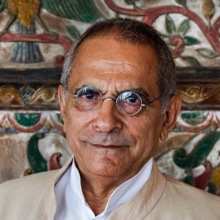September 15, 2016
U.N. Peace Operations: Have They Really Brought the World Closer to Peace?

In 1975 Indonesia took control of East Timor and began systematically oppressing the people. In the years that followed it has been estimated that one-third of the population of East Timor lost their lives due to starvation, epidemics, war and terror…
Jose Ramos-Horta was the leading international spokesman for East Timor’s cause after 1975, making a significant contribution through the “reconciliation talks” and by working out a peace plan for the region.
In awarding the 1996 Nobel Peace Prize to Carlos Belo and Ramos-Horta, the Norwegian Nobel Committee honored their sustained and self-sacrificing contributions for a small but oppressed people through their work towards a just and peaceful solution to the conflict in East Timor.
In 1999, after the people of East Timor voted for independence in a UN-sponsored referendum, an Indonesian military force intervened with a punitive scorched-earth campaign. This was ended through the intervention of an international force led by Australia. Following a UN-led transition, the independence of Timor-Leste was recognized in 2002.
Ramos-Horta served successively as Foreign Minister, Prime Minister, and President of the Republic (2007-2012). As President he launched a series of simple, creative anti-poverty initiatives. Subsequently he has undertaken assignments on behalf of the United Nations, including (since 2014) chairmanship of the High Level Independent Panel on UN Peace Operations.
Jose Ramos-Horta’s engagement with the promotion and protection of human rights has not been limited to his own country. In 1990 he launched at the University of New South Wales the first ever human rights education and training program in Asia. He has also been affiliated with Harvard’s Kennedy School and with St. Antony’s College, Oxford.

